The HyperTexts
Famous Rogues
This page is dedicated to the most famous rogues, rakes, renegades, rebels,
reformers, scoundrels, hypocrites and
heretics of art, poetry and literature. I have also included notorious
highwaymen, poets, pirates, soldiers, spies, politicians, libertines and lotharios such as
Alexander the Great, Marc Antony, Attila the Hun, Ma Barker, P. T. Barnum, Bonnie & Clyde Barrow, William
Blake, Blackbeard, Bluebeard, Anne Boleyn, William Bonney aka "Billy the Kid," Anne Bonny,
Charles Earl Bowles aka "Black Bart," Marlon Brando, Lord Byron, Giacomo Casanova, Julius
Caesar, Charles II aka "Bonnie Prince Charlie," Cleopatra, William the Conqueror,
James Dean, Claude Duval, Bob Dylan, Errol Flynn, Larry Flynt, Benjamin
Franklin, Maude Gonne, Mata Hari,
Hugh Hefner, Henry VIII, Herod, Adolph Hitler, Robin Hood, Harry Houdini, Howard
Hughes, Mick Jagger, Jesse James, Thomas Jefferson, Janis Joplin, Ned Kelly,
Nero, John
F. Kennedy, Genghis Khan, Captain
Kidd, John Lennon, Madonna, Marilyn Monroe, Napoleon, "Babyface" Nelson,
Sylvia Plath, Edgar
Alan Poe, Elvis Presley, Little Richard, the Marquis de Sade, Percy Bysshe
Shelley, Joseph Stalin, Alvin "Titanic" Thompson,
Donald Trump,
Paul Verlaine, François Villon,
Renée Vivien, Voltaire, Ralph Wanderone ("Minnesota Fats"), Mae West, Walt Whitman, Oscar Wilde, John Wilmot, Mary Wollstonecraft Shelley,
Virginia Woolf, Sir Thomas Wyatt the Elder, Elinor Wylie and
William Butler Yeats.
compiled by Michael R. Burch
Related pages:
Famous Beauties,
Famous Courtesans,
Famous Ingénues,
Famous Hustlers,
Famous Pool Sharks,
Famous Rogues,
Famous Heretics,
Famous Hypocrites,
Famous Forgers,
Famous Frauds,
Famous Flops,
Famous Morons,
The Dumbest Things Ever Said,
Famous Falsettos,
Famous Hoaxes and Hucksters,
Famous Love Triangles
The Divine Oscar Wilde: Notoriety Personified?
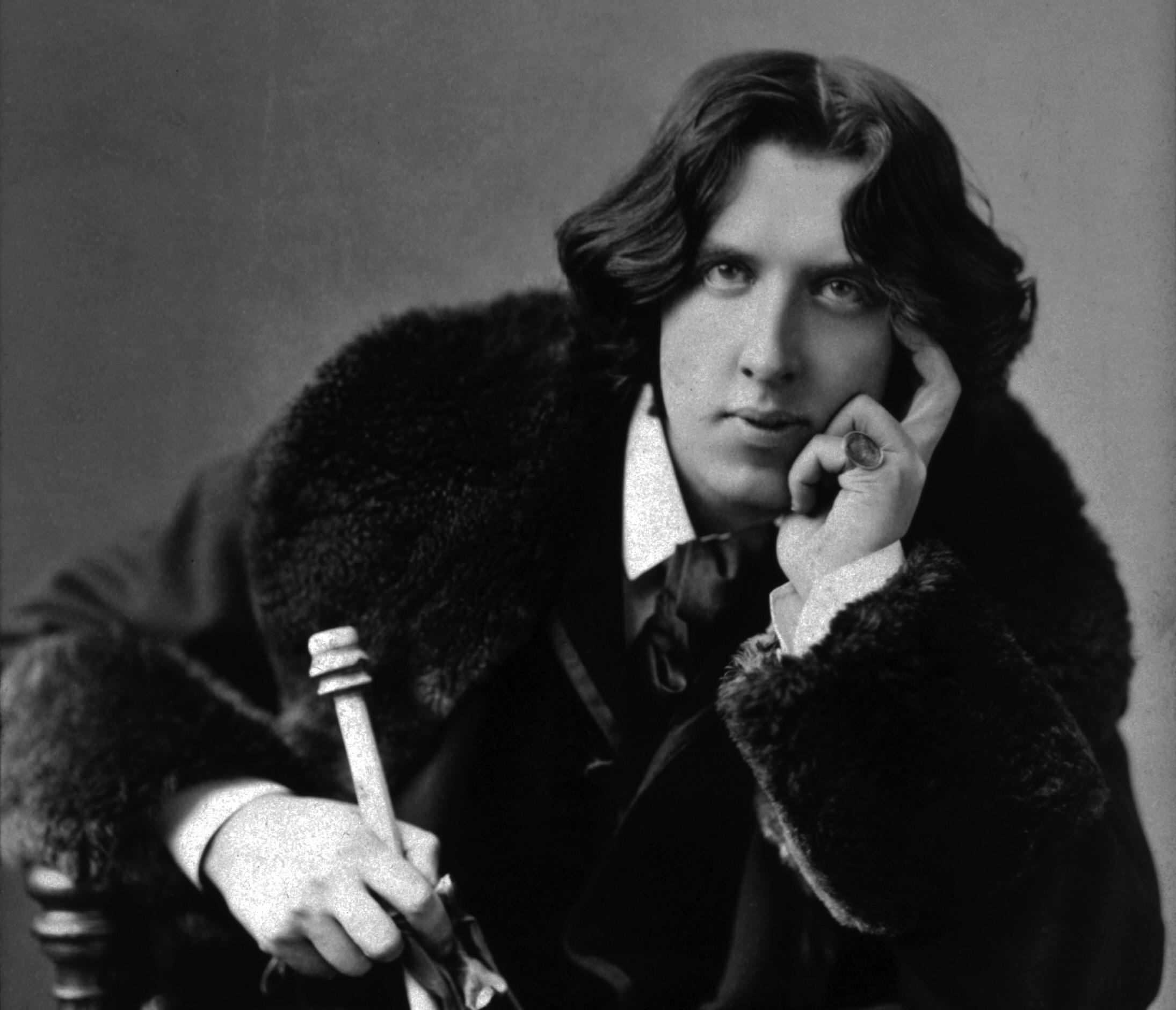
Oscar Wilde may be the most notorious "bad boy" in the annals of poetry and literature. He was flamboyantly gay
at a time when polite society was prim, proper and violently homophobic. As a result, he was sentenced to
hard labor at Reading Gaol and died soon after his release. Wilde is justly famous
today for his disdain for "respectability" and dull and dulling conformity, as his witty epigrams
prove:
Some cause happiness wherever they go; others whenever they go.
Men always want to be a woman's first love; women like to be a man's last romance.
Questions are never indiscreet, answers sometimes are.
Scandal is gossip made tedious by morality.
I can resist everything except temptation.
I believe God in creating Man somewhat overestimated his ability.
Whenever a man does a thoroughly stupid thing, it is always from the noblest motives.
There is no sin except stupidity.
Every saint has a past and every sinner has a future.
We are all in the gutter, but some of us are looking at the stars.
I never travel without my diary. One should always have something sensational to read.
I have nothing to declare except my genius. [To a customs officer.]
I suppose I shall have to die beyond my means. [Upon learning he needed an operation.]
Either that wallpaper goes, or I do. [His final words.]
Dorothy Parker, Wild as Wilde?
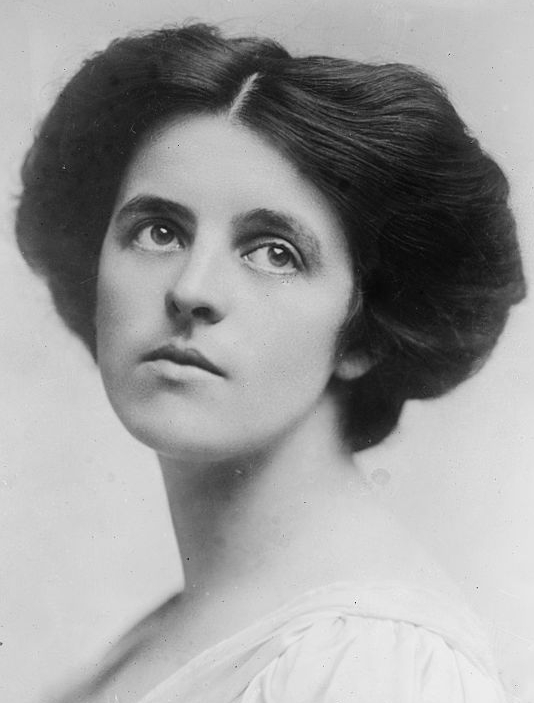
Dorothy Parker was perhaps Oscar Wilde's female double, or at the very least his
kindred spirit. Like Wilde, she left us a trove of witty epigrams:
I'd rather have a bottle in front of me / than a frontal lobotomy.
Men seldom make passes / At girls who wear glasses.
That woman speaks eight languages and can't say "no" in any of them.
If all the girls who attended the Yale prom were laid end to end, I wouldn't be a bit surprised.
If you want to know what God thinks of money, just look at the people he gave it to.
This is not a novel to be tossed aside lightly. It should be thrown with great force.
If, with the literate, I am
Impelled to try an epigram,
I never seek to take the credit;
We all assume that Oscar said it.
Is Donald Trump the Antichrist?

According to the Bible, the greatest rogue of all time will be the
Antichrist. Is Donald Trump this greatest of all rogues? The Antichrist will be
charismatic: a celebrity able to excite the masses. (Trump's reality TV show
The Apprentice). He will be persuasive: a smooth talker, the consummate salesman.
(Trump's best-selling book The Art of the Deal.) He will be a problem solver: convincing people that he alone has the answers to previously
unsolvable problems. (Trump's wall, paid for by Mexico.) He will in particular
claim to be able to solve the problems of the Middle East. (Trump promises to protect
Israel and to defeat ISIS.) He will be a military leader: a conqueror. (Trump claims to be the most
militaristic person on the planet.) He will be arrogant: "He shall exalt himself and magnify himself." (Is anyone as
arrogant as The Donald?) He will be an egomaniac: "He shall magnify himself above all." (Donald Trump is a God unto
Himself and claims that he never asks God for forgiveness.) He will be intimidating: a “king of fierce countenance.” (Trump is a bully and intimidator.)
And wait until you discover all the
666 connections we
found to Donald Trump and his family.
Sappho, the most Notorious Artist of Ancient Times?
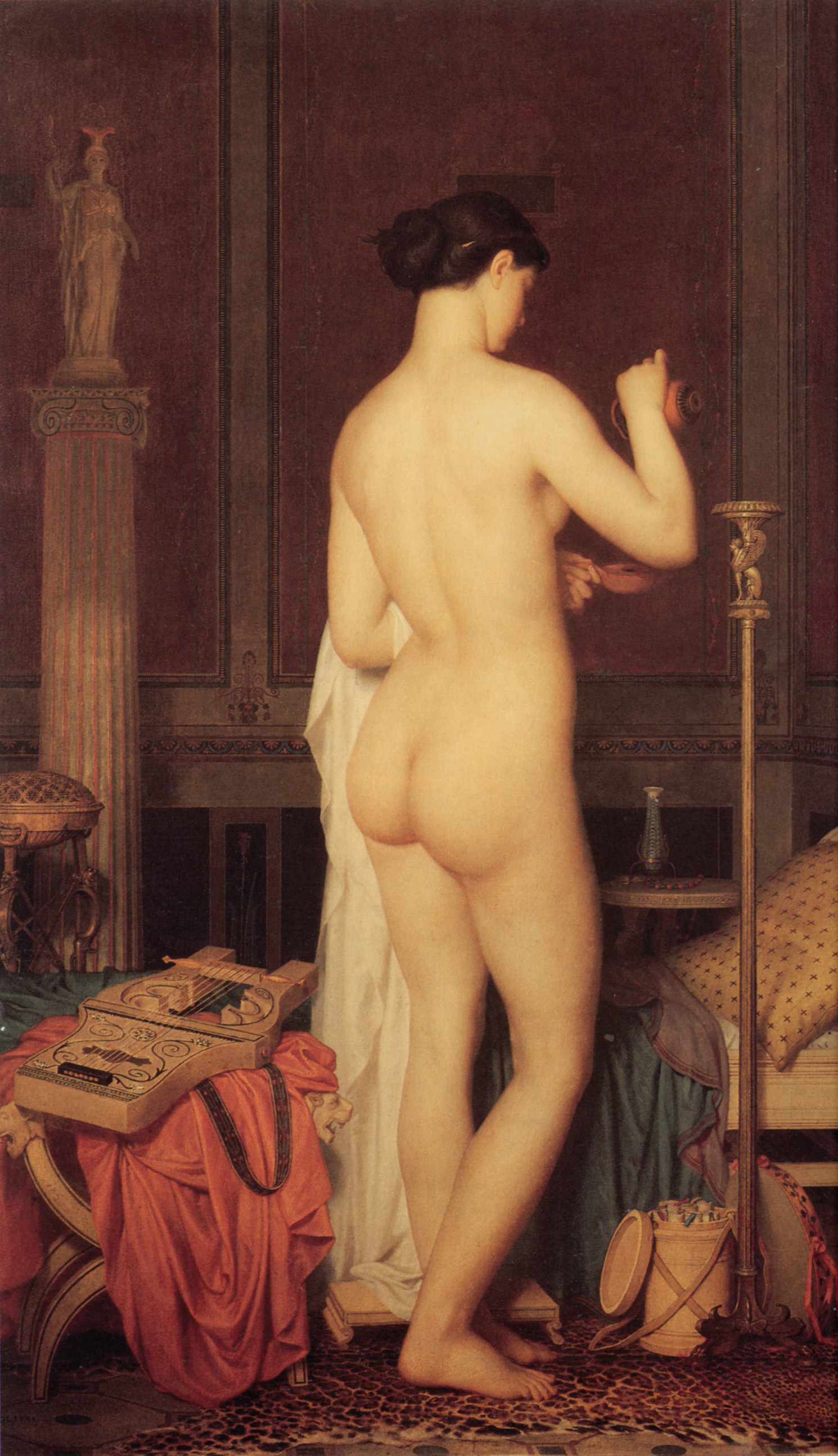
Gleyre Le Coucher de Sappho by Marc-Charles-Gabriel Gleyre
Sappho of Lesbos is perhaps the first great female poet still known to us today,
and she remains one of the very best poets of all time, regardless of gender.
She is so notorious that we get our terms "sapphic" and "lesbian" from her name
and island of residence. As you can see from the two utterly stellar epigrams
below, she remains a timeless treasure:
Sappho, fragment 42
loose translation by Michael R. Burch
Eros harrows my heart:
a wind on desolate mountains
uprooting oaks.
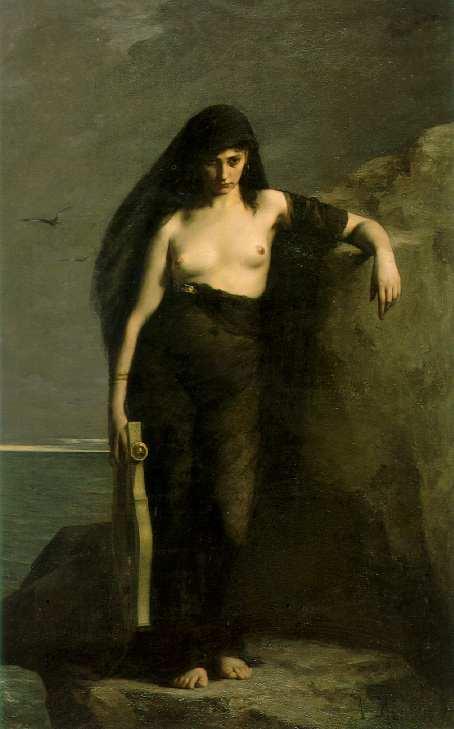
Artistic rendering of Sappho by William Adolphe Bouguereau
Sappho, fragment 155
loose translation by Michael R. Burch
A short transparent frock?
It's just my luck
your lips were made to mock!
William Butler Yeats and Maud Gonne: Revolutionary
Artistry?
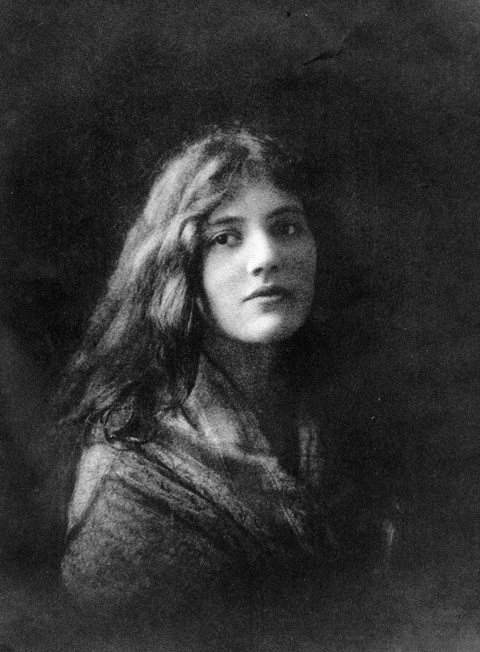
William Butler Yeats was the most famous Irish poet of all time, and his
unrequited love for Maud Gonne helped make her almost as famous as he was in
Ireland. Yeats dabbled in the occult, automatic writing, séances,
mysticism, spiritualism, hermeticism and astrology. When he
was admitted into the Golden Dawn, he took the magical motto
Daemon est Deus inversus—"Devil is God inverted." The moving poem
below is Yeats' loose translation of a Ronsard poem, in which Yeats imagines the
love of his life in her later years, tending a waning fire.
When You Are Old
When you are old and grey and full of sleep,
And nodding by the fire, take down this book,
And slowly read, and dream of the soft look
Your eyes had once, and of their shadows deep;
How many loved your moments of glad grace,
And loved your beauty with love false or true,
But one man loved the pilgrim soul in you,
And loved the sorrows of your changing face;
And bending down beside the glowing bars,
Murmur, a little sadly, how Love fled
And paced upon the mountains overhead
And hid his face amid a crowd of stars.
Lord Byron
George Gordon, Lord Byron, was one of the most notorious
poets of all time. While Byron is justly famous for his poetry, he is perhaps
even more infamous for his many love affairs, including a possibly incestuous
one with his half-sister, Augusta Leigh, and homosexual ones
with fellow students at Harrow and Cambridge. His mother once wrote that her son
"has no indisposition that I know of but love, desperate love, the worst of all
maladies in my opinion." He was renowned for his personal beauty, which he
enhanced by wearing curl-papers in his hair at night. Plagued by scandalous
rumors of incest, sodomy, adultery with actresses and marital violence, Byron
eventually left England, never to return. After his death, some of his
friends burned his autobiography, perhaps considering it too
notorious to be read by polite society.
So We'll Go No More A-Roving
So we'll go no more a-roving
So late into the night,
Though the heart be still as loving,
And the moon be still as bright.
For the sword outwears its sheath,
And the soul outwears the breast,
And the heart must pause to breathe,
And love itself have rest.
Though the night was made for loving,
And the day returns too soon,
Yet we'll go no more a-roving
By the light of the moon.
Sylvia Plath
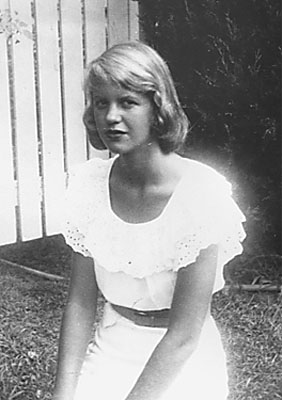
Sylvia Plath was one of the first and best of the modern confessional poets. She
won a Pulitzer Prize posthumously for her Collected Poems after
committing suicide at the age of 31, something she seemed to have been
predicting in her writing and practicing for in real life. For instance, in 1950
as a college student she had slashed her legs to see if she had the courage to
commit suicide, after failing to meet the great Welsh poet Dylan Thomas as she
had hoped. (Many of the events that took place around that time would later be
used as inspiration for her semi-autobiographical novel The Bell Jar.)
A few years later she attempted suicide for the first time by crawling under her
house and taking her mother's sleeping pills. She spent three days in the crawl
space, thinking the blackness she experienced was "eternal oblivion." She
eventually ended her life on February 11, 1963, by sticking her head in an oven
and turning on the gas. After her death, women in the feminist movement
came to see Plath as a voice speaking for them. Honor Moore
opined: "When Sylvia Plath’s Ariel was published in the United States
in 1966, American women noticed. Not only women who ordinarily read poems, but
housewives and mothers whose ambitions had awakened ... Here was a woman,
superbly trained in her craft, whose final poems uncompromisingly charted female
rage, ambivalence, and grief, in a voice with which many women identified."
Edge
The woman is perfected.
Her dead
Body wears the smile of accomplishment,
The illusion of a Greek necessity
Flows in the scrolls of her toga,
Her bare
Feet seem to be saying:
We have come so far, it is over.
Each dead child coiled, a white serpent,
One at each little
Pitcher of milk, now empty.
She has folded
Them back into her body, as petals
Of a rose close when the garden
Stiffens and odors bleed
From the sweet, deep throats of the night flower.
The moon has nothing to be sad about,
Staring from her hood of bone.
She is used to this sort of thing.
Her blacks crackle and drag.
Anne Sexton
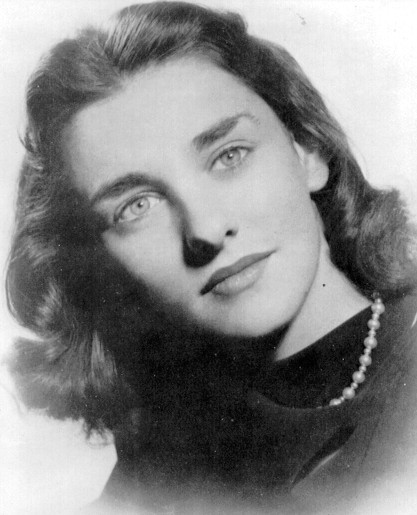
Anne Sexton was a model who became a confessional
poet, writing about intimate aspects of her life, after her doctor suggested
that she take up poetry as a form of therapy. She studied under Robert Lowell at
Boston University, where Sylvia Plath was one of her classmates. Sexton won the
Pulitzer Prize for Poetry in 1967, but later committed suicide via carbon
monoxide poisoning. Topics she covered in her poems included adultery,
masturbation, menstruation, abortion, despair and suicide.
The Truth the Dead Know
For my Mother, born March 1902, died March 1959
and my Father, born February 1900, died June 1959
Gone, I say and walk from church,
refusing the stiff procession to the grave,
letting the dead ride alone in the hearse.
It is June. I am tired of being brave.
We drive to the Cape. I cultivate
myself where the sun gutters from the sky,
where the sea swings in like an iron gate
and we touch. In another country people die.
My darling, the wind falls in like stones
from the whitehearted water and when we touch
we enter touch entirely. No one's alone.
Men kill for this, or for as much.
And what of the dead? They lie without shoes
in the stone boats. They are more like stone
than the sea would be if it stopped. They refuse
to be blessed, throat, eye and knucklebone.
Dylan Thomas
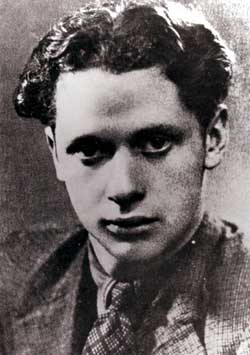
Dylan Thomas died after a multi-day drinking binge in which he was quoted as
saying, "I've had 18 straight whiskies. I think that's the record!" Thomas was
admitted to the emergency ward at St Vincent's Hospital in a comatose state, and
his medical notes state that the "impression upon admission was acute alcoholic
encephalopathy damage to the brain by alcohol, for which the patient was treated
without response". His wife Caitlin flew to America the next day and was taken
to the hospital. Her first reported words were, "Is the bloody man dead yet?"
Later, in a drunken rage, she threatened to kill another poet, John Brinnin.
When she became uncontrollable, she was put in a straight-jacket and committed
to the River Crest private psychiatric detox clinic on Long Island.
In My Craft Or Sullen Art
by Dylan Thomas
In my craft or sullen art
Exercised in the still night
When only the moon rages
And the lovers lie abed
With all their griefs in their arms,
I labour by singing light
Not for ambition or bread
Or the strut and trade of charms
On the ivory stages
But for the common wages
Of their most secret heart.
Not for the proud man apart
From the raging moon I write
On these spindrift pages
Nor for the towering dead
With their nightingales and psalms
But for the lovers, their arms
Round the griefs of the ages,
Who pay no praise or wages
Nor heed my craft or art.
Edna St. Vincent Millay
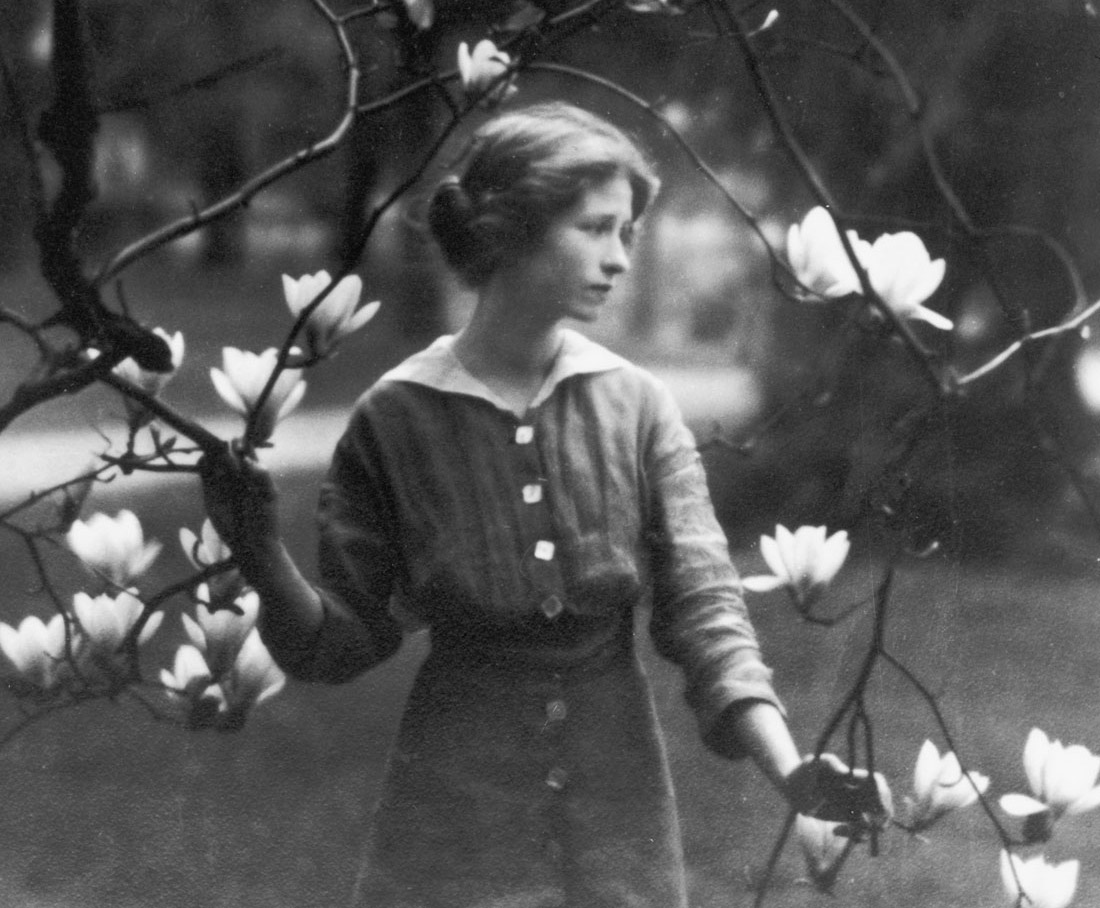
Edna St. Vincent Millay was the first woman to win a Pulitzer Prize for poetry.
She was openly bisexual and had affairs with other women and married men. When
she finally married, hers was an open marriage. Her 1920 poetry collection A
Few Figs From Thistles drew controversy for its novel exploration of female
sexuality. She was one of the earliest and strongest voices for what became
known as feminism. One of the recurring themes of her poetry was that men might
use her body, but not possess her or have any claim over her. (And perhaps that
their desire for her body gave her the upper hand in relationships.)
I, Being Born a Woman, and Distressed
by Edna St. Vincent
Millay
I, being born a woman, and distressed
By all the needs and notions of my kind,
Am urged by your propinquity to find
Your person fair, and feel a certain zest
To bear your body's weight upon my breast:
So subtly is the fume of life designed,
To clarify the pulse and cloud the mind,
And leave me once again undone, possessed.
Think not for this, however, this poor treason
Of my stout blood against my staggering brain,
I shall remember you with love, or season
My scorn with pity — let me make it plain:
I find this frenzy insufficient reason
For conversation when we meet again.
Anne Bradstreet
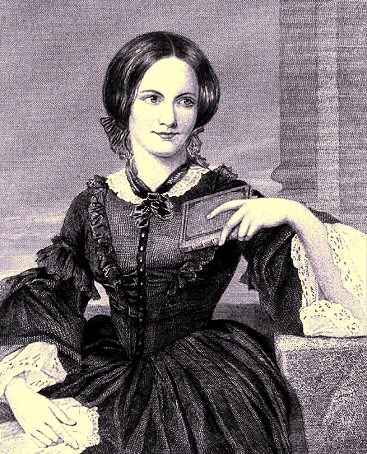
Anne Dudley Bradstreet was America's first published poet, called the "tenth
Muse," and a free thinker and early feminist. In her poem "The Prologue, she
pointed out how the chauvinistic society of her day
unfairly criticized women's accomplishments:
I am obnoxious to each carping tongue
Who says my hand a needle better fits,
A poet's pen all scorn I should thus wrong.
For such despite they cast on female wits:
If what I do prove well, it won't advance,
They'll say it's stol'n, or else it was by chance.
Percy Bysshe Shelley and Mary Wollstonecraft Shelley
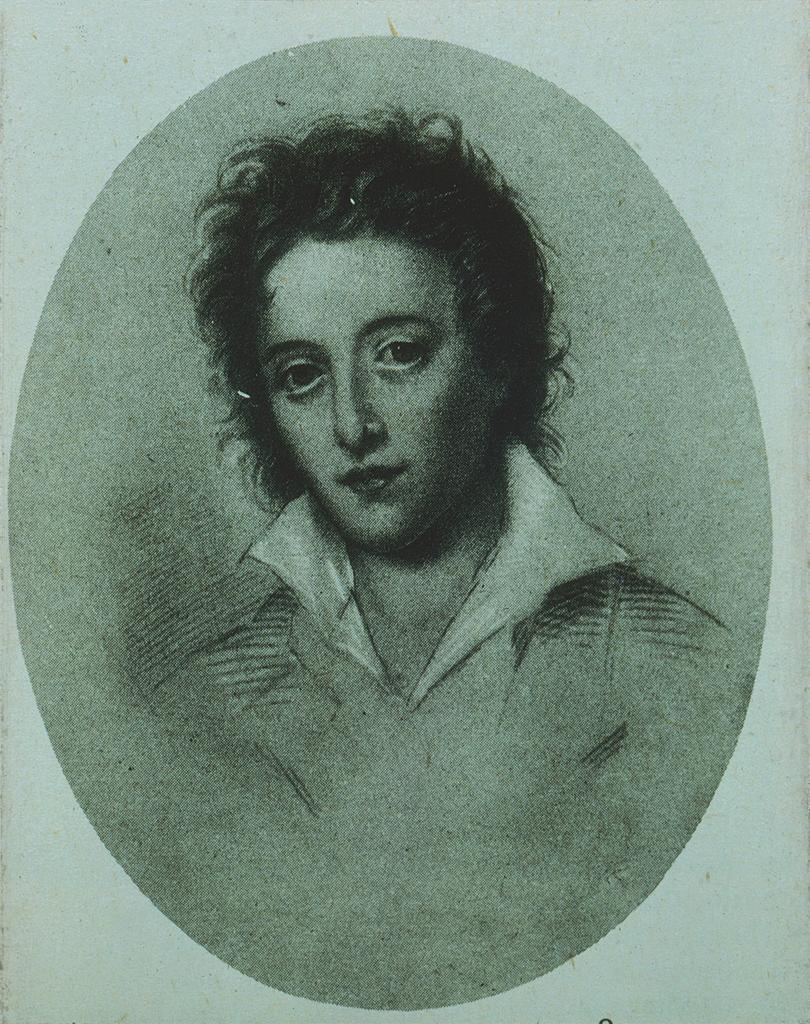
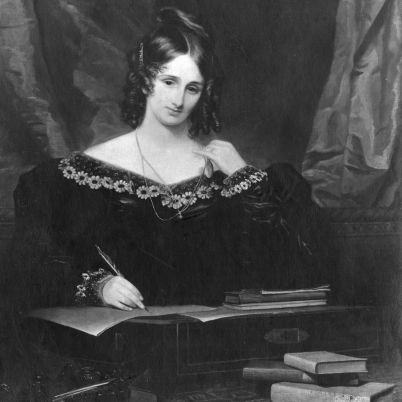
Percy Bysshe Shelley and Mary Wollstonecraft Shelley may have been the most notorious married
couple of their era. He was a dashing romantic poet and heretic who wrote a
tract, "The Necessity of Atheism," that got him expelled from Oxford. He also
wrote in favor of nonviolence and against monarchies,
imperialism and war. She was the daughter of one of the earliest feminist
writers of note, Mary Wollstonecraft, and the liberal philosopher William
Godwin. Her parents had, for their day, a rather
shocking marriage, with multiple affairs and an illegitimate child born to her
mother. Thus the young Mary Wollstonecraft Godwin may have grown up with
unconventional ideas about sex and marriage. In 1814, at age seventeen, she
became romantically involved with Percy Shelley, who was married at the time but
threatened to commit suicide if she spurned his advances. They spent time
together in France and Switzerland; when they returned, Mary was pregnant. Percy's wife Harriet, who was also pregnant, committed suicide in 1816; Percy
and Mary married soon thereafter. The same year they spent the summer with Lord
Byron. It was at this time that Mary conceived the story that became her famous
gothic novel Frankenstein. In 1918 a baby girl, Elena Adelaide Shelley,
was born and registered in Italy as the daughter of Percy and a woman named
"Marina Padurin." However, the real identity of the mother remains an unsolved
mystery. In 1822, Percy drowned at sea at age thirty. Who knows what he would
have accomplished if he had lived longer, but he is still considered to be one
of the greatest English poets. Here is one especially lovely example of his
wonderful touch with rhythm and rhyme:
Music When Soft Voices Die (To
—)
Music, when soft voices die,
Vibrates in the memory—
Odours, when sweet violets sicken,
Live within the sense they quicken.
Rose leaves, when the rose is dead,
Are heaped for the belovèd's bed;
And so thy thoughts, when thou art gone,
Love itself shall slumber on.
Dante Gabriel Rossetti and Elizabeth Siddal
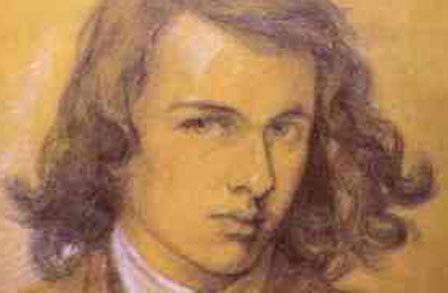
Self-Portrait, 1847
Dante Gabriel Rossetti was an English romantic poet, painter, illustrator and
translator. He was also one of the founders of the Pre-Raphaelite Brotherhood. His
art was characterized by sensuality and medieval revivalism. He frequently wrote
sonnets to accompany his works of visual art. In 1850 he met Elizabeth Siddal
(pictured below), who became his model, his passion, and eventually in 1860, his
wife. But around the time of his marriage, he began to paint a new model, his
new lover, Fanny Cornforth.
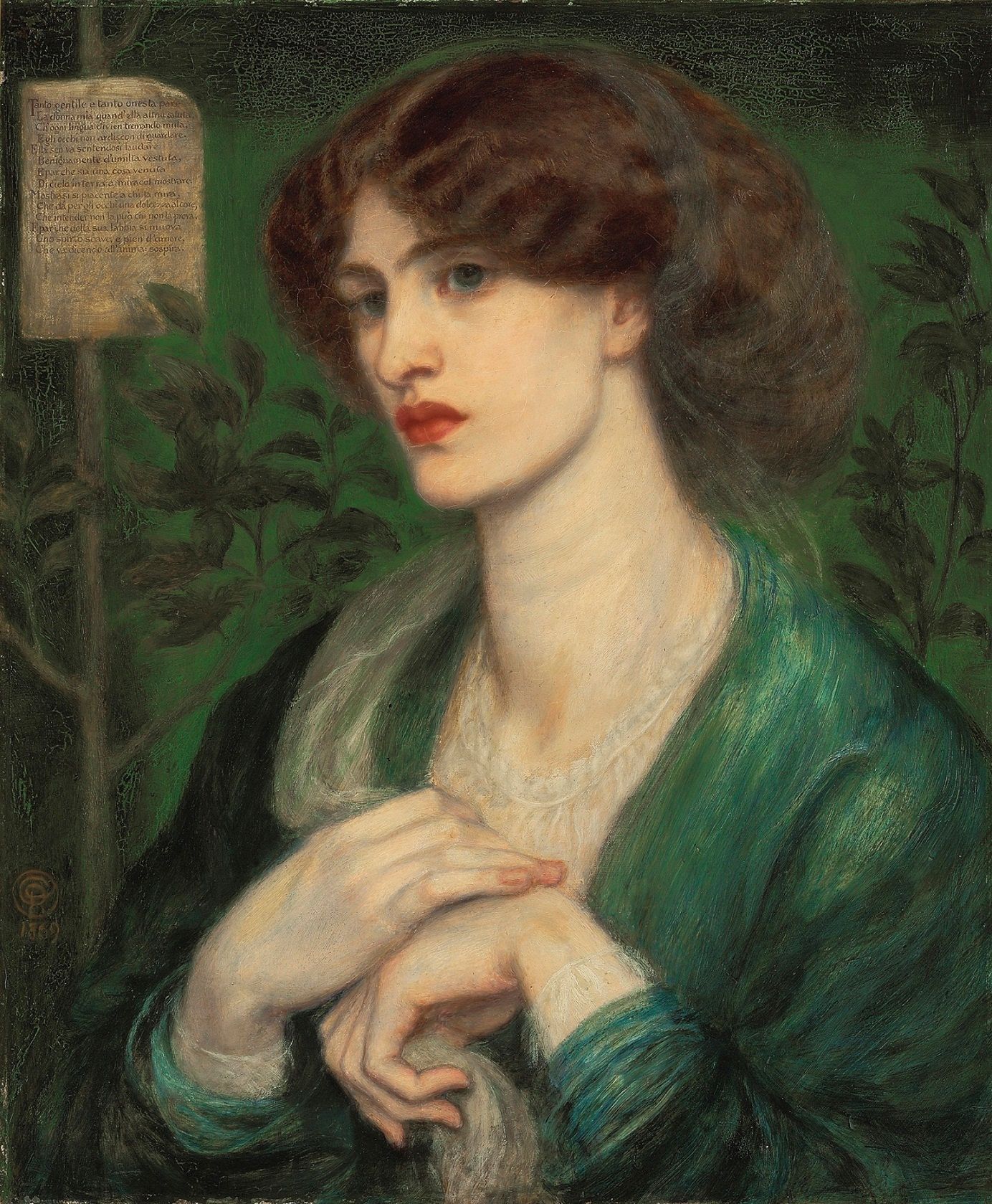
Elizabeth Siddal died of an overdose of laudanum in 1862, shortly after giving
birth to a stillborn child. Rossetti buried the bulk of his unpublished poems
with her at Highgate Cemetery, but he later had them dug up. He idealized her as
Dante's Beatrice in a number of paintings, such as Beata Beatrix (below).
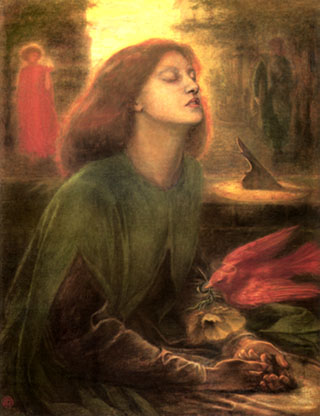
Beata Beatrix
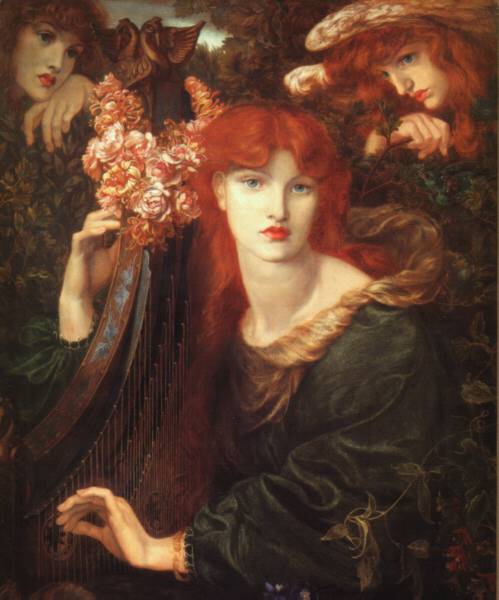
After his wife's death, Rossetti leased a house in Chelsea where he lived amid
extravagant furnishings and a parade of exotic birds and animals. He owned a pet
wombat named "Top" who was brought to the dinner table and allowed to sleep in
the large centerpiece during meals. He also owned a llama and a toucan. The
toucan was dressed in a cowboy hat and rode the llama around the dining table
for his amusement.
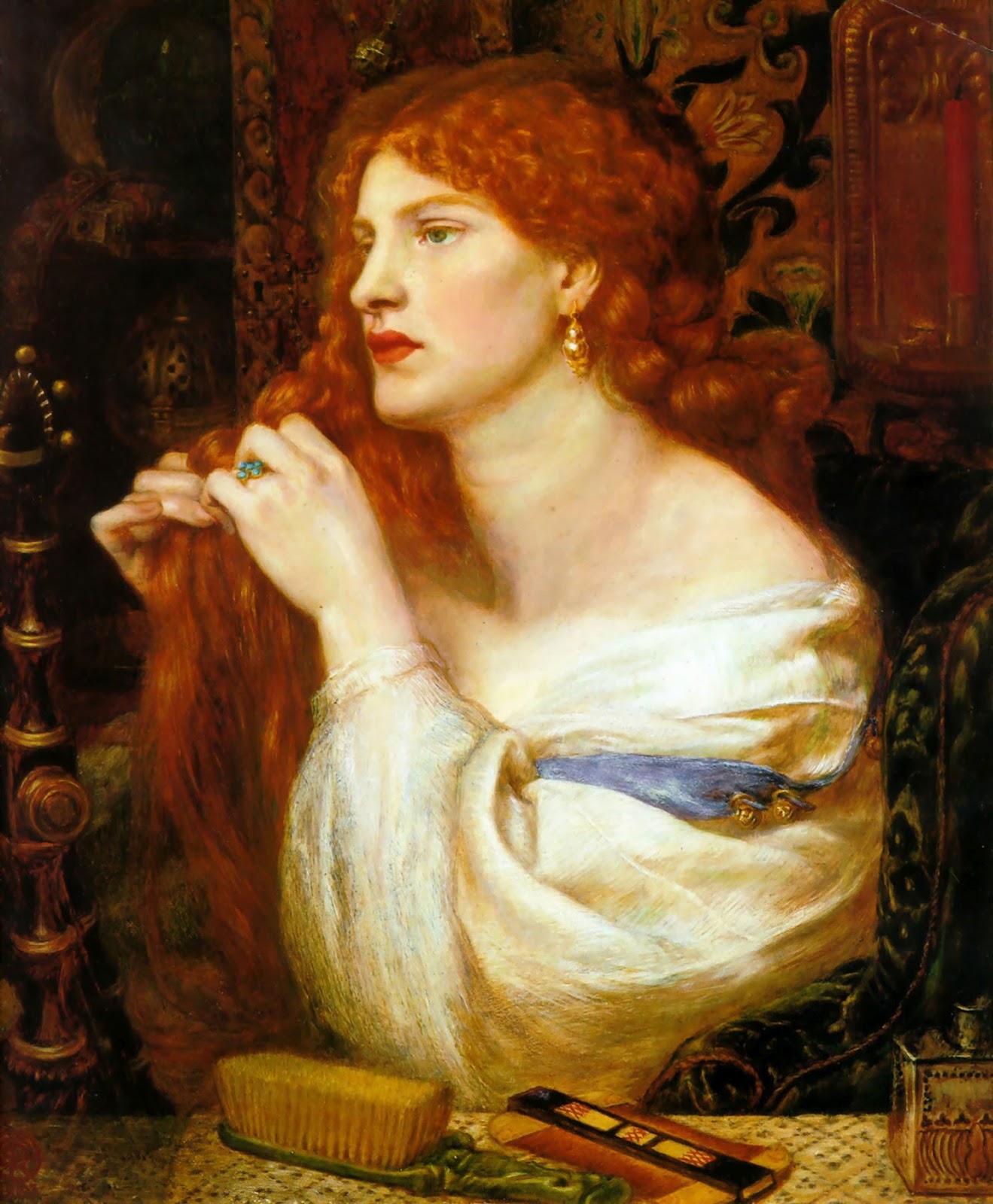
After Rossetti exhumed his poems from his wife's grave they were published in
1870. The poems were attacked as the epitome of the "fleshly school of poetry"
due to their eroticism and sensuality. The savage reaction of critics to
Rossetti's first collection of poetry contributed to a mental breakdown he
suffered in 1872, and he "spent his days in a haze of chloral and whisky". He
recovered enough to create a soulful series of dream-like portraits of his
favored models Alexa Wilding and Jane Morris. But toward the end of his life, he
sank into a morbid state, darkened by his drug addiction to chloral hydrate and
increasing mental instability. He spent his last years as a recluse.
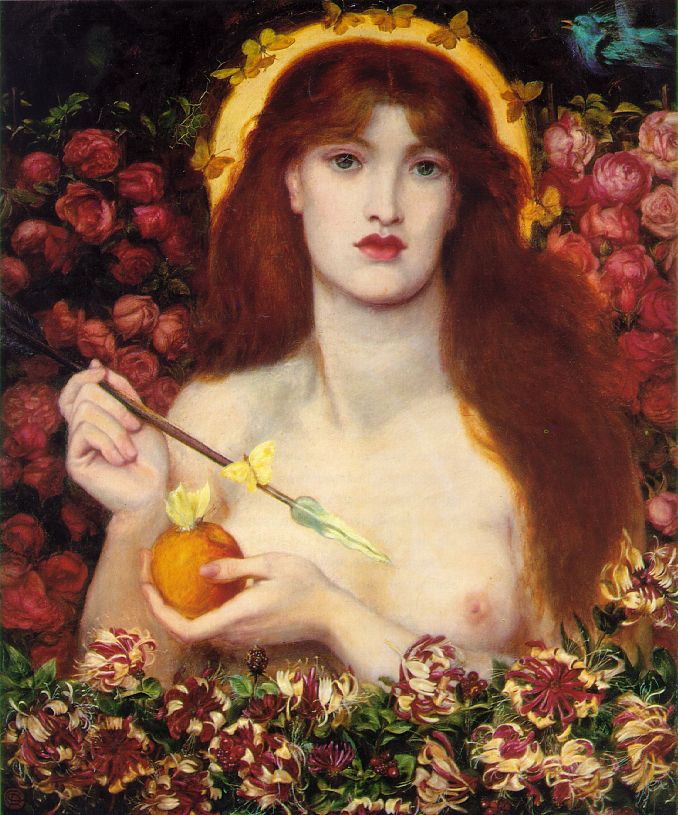
Christina Rossetti
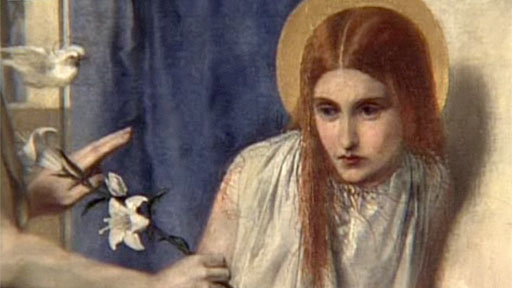
Christina Rossetti was the sister of Dante Gabriel Rossetti, and perhaps the
better poet.
Song
by Christina Rossetti
When I am dead, my dearest,
Sing no sad songs for me;
Plant thou no roses at my head,
Nor shady cypress tree:
Be the green grass above me
With showers and dewdrops wet;
And if thou wilt, remember,
And if thou wilt, forget.
I shall not see the shadows,
I shall not feel the rain;
I shall not hear the nightingale
Sing on, as if in pain:
And dreaming through the twilight
That doth not rise nor set,
Haply I may remember,
And haply may forget.
Arthur Rimbaud and Paul Verlaine
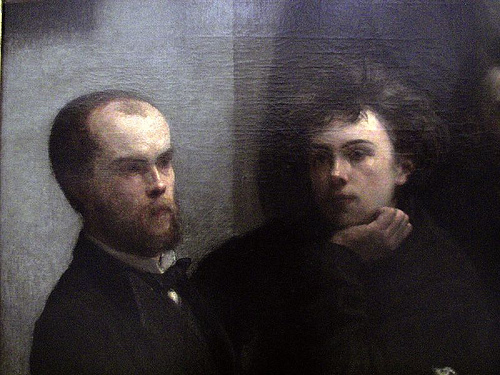
Arthur Rimbaud (on the right above and below) and Paul Verlaine (on the left
above) were French poets. Rimbaud was a child prodigy; he showed maturity as a
poet at age fifteen and is considered one of the greatest French poets even
though he stopped writing poetry by age twenty. When Rimbaud was seventeen, he
met Paul Verlaine and they began a torrid affair, even though Verlaine was
married and his wife, also seventeen, was pregnant. Together the two poets led a
wild, vagabond-like existence, indulging in sex, absinthe and hashish. Verlaine
abandoned his wife and infant son, both of whom he had abused in alcoholic rages.
But the poets' relationship also became increasingly violent. Finally, in a drunken rage,
Verlaine shot Rimbaud, wounding his left wrist. At first Rimbaud refused to
press charges, but when he felt that Verlaine's behavior was becoming bizarre to
the point of insanity, he begged a police officer to arrest his former lover.
Verlaine was subsequently sentenced to two years in prison. By age twenty
Rimbaud had given up poetry to become a soldier, deserter, stone quarry foreman,
gunrunner and slave trader, among other occupations. He died at age 37 shortly
after having his right leg amputated. After the shooting, Verlaine became a
convert to Catholicism and a school teacher. He died at age 51 of complications
from his drug abuse and alcoholism.
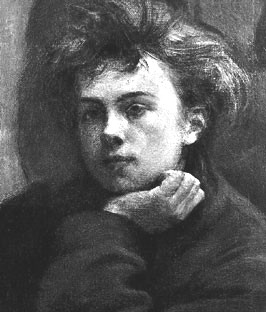
Here's a poem written by Rimbaud, at the age of sixteen or earlier:
Sensation
On the blue summer evenings, I shall go down the paths,
Getting pricked by the corn, crushing the short grass:
In a dream I shall feel its coolness on my feet.
I shall let the wind bathe my bare head.
I shall not speak, I shall think about nothing:
But endless love will mount in my soul;
And I shall travel far, very far, like a gipsy,
Through the countryside—as happy as if I were with a woman.
Sir Thomas Wyatt and Anne Boleyn
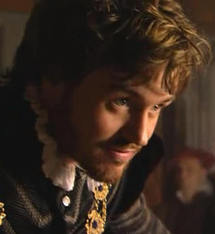

Sir Thomas Wyatt has been credited with introducing the
Petrarchan sonnet into the English language. His father, Henry Wyatt, had been one of Henry
VII's Privy Councilors, and remained a trusted adviser when Henry VIII came to
the throne in 1509. Thomas Wyatt followed his father to court. But it seems the
young poet may have fallen in love with the king’s mistress. Many legends and
conjectures suggest that an unhappily married Wyatt had a relationship with
Anne Boleyn. Their acquaintance is certain, but whether or not the two
actually shared a romantic relationship remains unknown. But in his poetry, Wyatt called
his mistress Anna, and sometimes embedded pieces of information that seem to correspond with
her life. For instance, this poem might well have been written
about the King’s claim on Anne Boleyn:
Whoso List to Hunt
Whoso list to hunt, I know where is an hind,
But as for me, alas, I may no more.
The vain travail hath wearied me so sore,
I am of them that farthest cometh behind.
Yet may I by no means my wearied mind
Draw from the deer, but as she fleeth afore
Fainting I follow. I leave off therefore,
Since in a net I seek to hold the wind.
Who list her hunt, I put him out of doubt,
As well as I may spend his time in vain.
And graven with diamonds in letters plain
There is written, her fair neck round about:
Noli me tangere, for Caesar's I am,
And wild for to hold, though I seem tame.
Noli me tangere means "Touch me not." According to the Bible, this is
what Jesus said to Mary Magdalene when she tried to embrace him after the
resurrection.
In May 1536, Wyatt was imprisoned in the Tower of London for allegedly
committing adultery with Anne Boleyn. He was released from the Tower later that
year, thanks to his friendship and his father's friendship with Thomas Cromwell. But during his stay in the Tower,
Wyatt may have
witnessed the execution of Anne Boleyn from his cell window, and the
executions of the five other men with whom she was accused of committing
adultery.
Virginia Woolf
Adeline Virginia Woolf was one of the leading early twentieth century modernists
and feminists. She was sexually abused by her half-brothers, had several nervous
breakdowns, and was institutionalized for a period of time, before finally
committing suicide by filling her pockets with stones and walking into the River
Ouse, where she drowned. She was bisexual or at least tentatively explored
lesbian sex with the writer Vita Sackville-West. In her novel Orlando
the titular hero shifts gender. She also denounced Christianity and at times
seemed to border on anti-Semitism in her writing despite being married to a "penniless Jew."
For most of history, Anonymous was a woman.
Each has his past shut in him like the leaves of a book known to him by heart, and his friends can only read the title.
One has to secrete a jelly in which to slip quotations down people's throats,
and one always secretes too much jelly.
Yet, it is true, poetry is delicious; the best prose is that which is most
full of poetry.
I want the concentration and the romance, and the worlds all glued together,
fused, glowing: have no time to waste any more on prose.
The history of men's opposition to women's emancipation is more interesting
perhaps than the story of that emancipation itself.
This is an important book, the critic assumes, because it deals with war.
This is an insignificant book because it deals with the feelings of women in a
drawing-room.
Life is not a series of gig lamps symmetrically arranged; life
is a luminous halo, a semi-transparent envelope surrounding us from the
beginning of consciousness to the end.
Renée Vivien
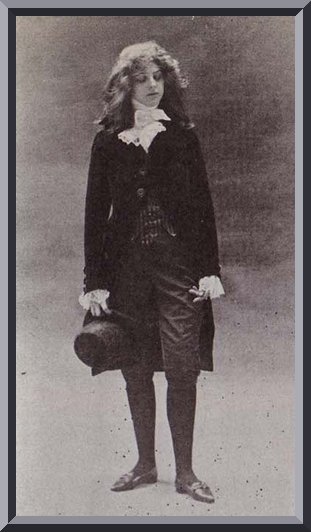
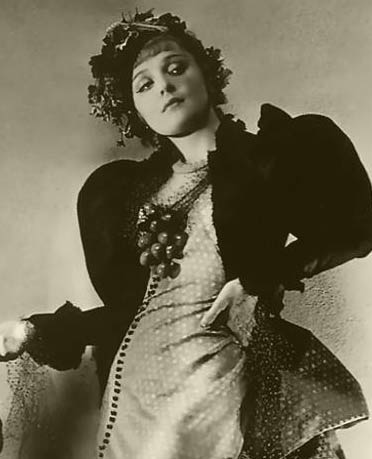
Renée Vivien (1877-1909) was a
British poet who wrote primarily in French. She was one of the last major poets
of Symbolism. Her work included sonnets, hendecasyllabic verse and prose poetry.
Born
Pauline Mary Tarn in London to a British father and American mother, she grew up in Paris and London. Upon inheriting her father's fortune at age 21,
she emigrated permanently to France. In Paris, her dress and lifestyle were as
notorious as her verse. She lived lavishly as an open lesbian, sometimes
dressing in men's clothes, while harboring a
lifelong obsession for her closest childhood friend, Violet Shillito (a
relationship that apparently remained unconsummated). Her obsession with violets
led to Vivien being called the "Muse of the Violets." But in 1900 Vivien abandoned
this chaste love to engage in a public affair with the American writer and
heiress Natalie Clifford Barney. The following year Shillito died of typhoid
fever, a tragedy from which Vivien never fully recovered. Vivien later had a
relationship with a baroness to whom she considered herself to be married, even
though the baroness had a husband and children. During her adventurous life,
Vivien indulged in alcohol, drugs, fetishes and sadomasochism. But she grew
increasingly frail and by the time of her death she weighed only 70 pounds,
quite possibly dying from the cumulative effects of anorexia, alcoholism and
drug abuse.
Song
loose translation by Michael R. Burch
When the moon weeps,
illuminating flowers on the graves of the faithful,
my memories creep
back to you, wrapped in flightless wings.
It's getting late; soon we will sleep
(your eyes already half closed)
steeped
in the shimmering air.
O, the agony of burning roses:
your forehead discloses
a heavy despondency,
though your hair floats lightly ...
In the night sky the stars burn whitely
as the Goddess nightly
resurrects flowers that fear the sun
and die before dawn ...
Emily Brontë
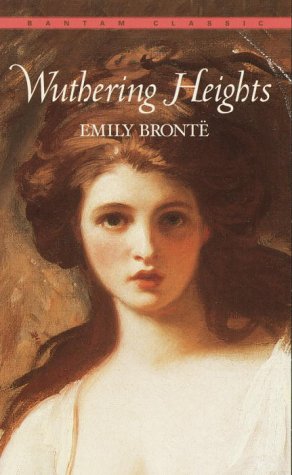
Emily Brontë was an English poet and novelist best known today for her bleak
Gothic novel Wuthering Heights, a book of amorous (perhaps even amoral)
passion. She lived a secluded life with her sisters, in which they created joint
fantasy worlds such as the one they called Gondal. Posing as the Bell brothers,
Emily and her sisters Anne and Charlotte published a book of poems together.
Emily Brontë died at age 30, perhaps from being poisoned by foul runoff from a
nearby church graveyard. In the picture below, Anne, Emily and Charlotte Brontë
have been painted by their brother Branwell.
Elinor Wylie
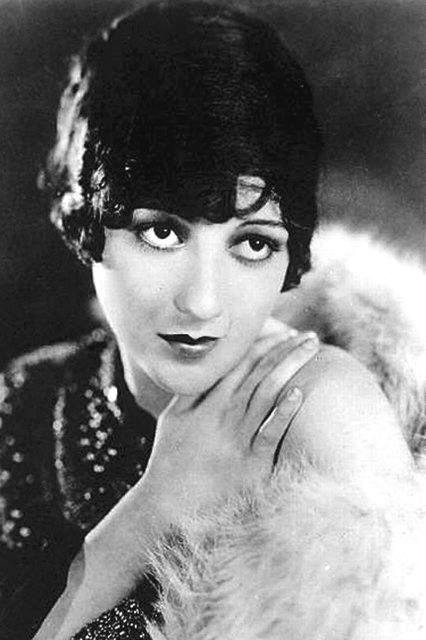
Elinor Wylie "was famous during her life almost as much for her ethereal beauty
and personality as for her melodious, sensuous poetry."
Cold-Blooded Creatures
Man, the egregious egoist
(In mystery the twig is bent)
Imagines, by some mental twist,
That he alone is sentient
Of the intolerable load
That on all living creatures lies,
Nor stoops to pity in the toad
The speechless sorrow of his eyes.
He asks no questions of the snake,
Nor plumbs the phosphorescent gloom
Where lidless fishes, broad awake,
Swim staring at a nightmare doom.
Emily Dickinson
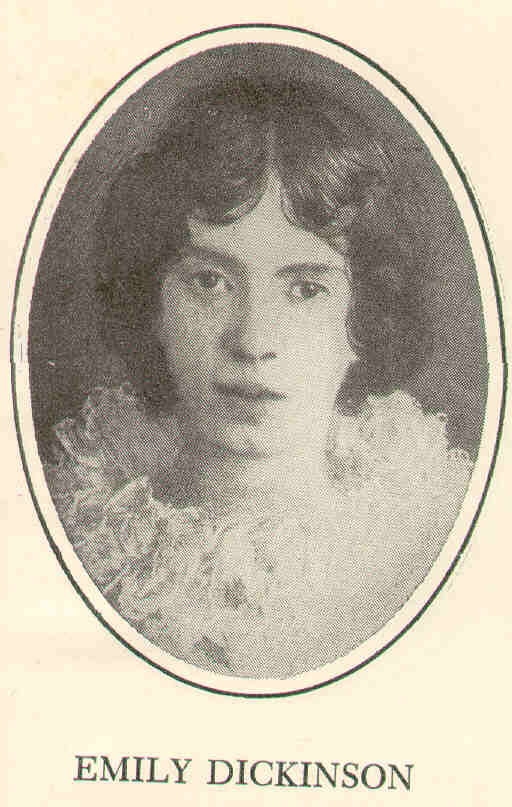
Come slowly, Eden
Come slowly, Eden
Lips unused to thee.
Bashful, sip thy jasmines,
As the fainting bee,
Reaching late his flower,
Round her chamber hums,
Counts his nectars—alights,
And is lost in balms!
Anne Reeve Aldrich: American Sappho
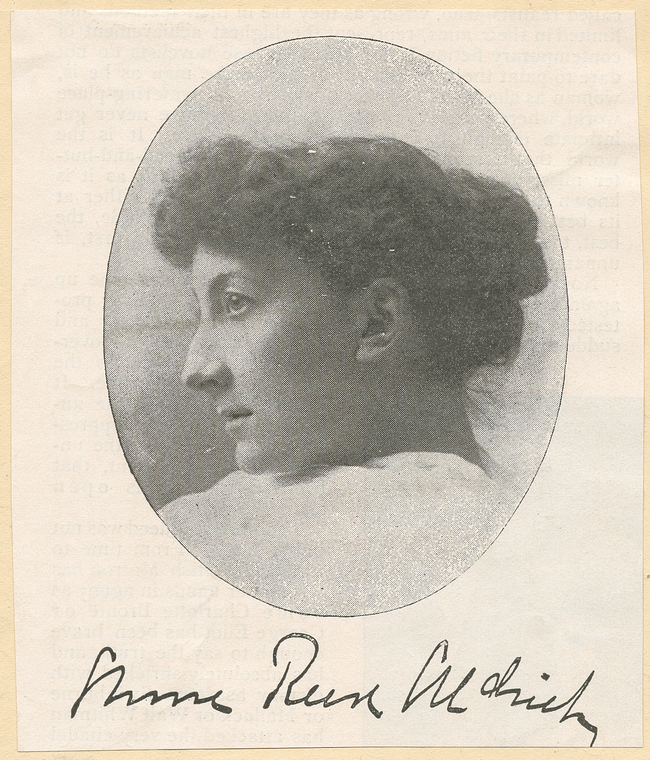
Anne Reeve Aldrich [1866-1892] was an American poet and novelist. She wrote a number of poems in which she seemed to prophesy an early death,
then died at the tender age of 26. She published her first volume of poetry, The Rose of Flame in 1889; it was not well received
(critics cited its "unrestrained expression"). She was also accused of having written “erotic” poems.
Servitude
The church was dim at vespers.
My eyes were on the Rood.
But yet I felt thee near me,
In every drop of blood.
In helpless, trembling bondage
My soul's weight lies on thee,
O call me not at dead of night,
Lest I should come to thee!
Elizabeth Barrett Browning
Elizabeth Barrett Browning came from a family that had owned slaves in Jamaica for generations. She began taking morphine as a teenager, due
to a lung condition, and would remain addicted to it until she died. After her brother drowned, she became a recluse, spending five years in
her bedroom. But she continued to write poetry, and her work brought her to the attention of the poet Robert Browning. Her tyrannical father
did not want her to marry, and after she married Browning, he disinherited her and never spoke to her again. She was a heretic, opposing
slavery and advocating women's rights, and she wrote a verse novel, Aurora Leigh, about male domination of women.
Other Notorious Poets of Note
William Blake advocated free love, railed against the black-robed priests of orthodox Christianity, and called Jehovah "Nobodaddy."
Sir Walter Raleigh was a soldier, courtier,
adventurer and spy. He was sent to the Tower of London for seducing and secretly
marrying one of Queen Elizabeth's ladies in waiting. He was later beheaded for
treason on what seem to have been trumped-up charges.
Rainer Maria Rilke had a highly unconventional life for his day. When he was
young his mother, who had lost a daughter, dressed him in girl's clothing. He
later had a relationship with an older married woman. He did not believe in the
divinity of Christ and wrote a poem about Mary Magdalene bearing him a son.
Robert Burns fathered children by different women, wrote drinking songs and
claimed that commoners were as good as lords and kings."
Edgar Allan Poe (1809–1849) was an American author, poet, editor, and literary
critic. He was a leading figure in the American Romantic Movement. Poe married his 13-year-old cousin, was court-martialed from West
Point for refusing to attend classes, and he is believed to
have died after a night of heavy drinking.
Best known for his tales of mystery and the macabre, Poe was one of the earliest
American practitioners of the short story and is generally considered to be the
inventor of the detective fiction genre. He is also credited with contributing
to the emerging genre of science fiction. Poe was the first well-known American
writer to earn a living through writing alone, which resulted in a financially
difficult life and career. The day Edgar Allan Poe was buried, a long obituary
appeared in the New York Tribune signed "Ludwig". It was soon published
throughout the country. The piece began, "Edgar Allan Poe is dead. He died in
Baltimore the day before yesterday. This announcement will startle many, but few
will be grieved by it." This "Ludwig" was soon identified as Rufus Wilmot
Griswold, an editor, critic and anthologist who had borne a grudge against Poe
since 1842. Griswold somehow became Poe's literary executor and attempted to
destroy his enemy's reputation after his death. Griswold wrote a biographical
article of Poe called "Memoir of the Author", which he included in an 1850
volume of the collected works. Griswold depicted Poe as a depraved, drunk,
drug-addled madman and included Poe's letters as evidence. Many of his claims
were either lies or distorted half-truths. For example, it is now known that Poe
was not a drug addict. Griswold's book was denounced by those who knew Poe well,
but it became a popularly accepted one. This occurred in part because it was the
only full biography available and was widely reprinted and in part because
readers thrilled at the thought of reading works by an "evil" man. Letters that
Griswold presented as proof of this depiction of Poe were later revealed as
forgeries.
Donatien Alphonse François, better known as the Marquis de Sade (1740–1814) was
a French aristocrat, revolutionary politician, philosopher and writer. He was
famous (or infamous) for his libertine sexuality. His works include novels,
short stories, plays, dialogues and political tracts; in his lifetime some were
published under his own name, while others appeared anonymously and de Sade
denied being their author. He is best known for his erotic works, which combined
philosophical discourse with pornography, depicting sexual fantasies with an
emphasis on violence, criminality and blasphemy against the Catholic Church. He
was a proponent of extreme freedom, unrestrained by morality, religion or law.
The words "sadism" and "sadist" are derived from his name. Sade was incarcerated
in various prisons and in an insane asylum for about 32 years of his life; 11
years in Paris (10 of which were spent in the Bastille), a month in the
Conciergerie, two years in a fortress, a year in Madelonnettes, three years in
Bicêtre, a year in Sainte-Pélagie and 13 years in the Charenton asylum. During
the French Revolution he was an elected delegate to the National Convention.
Many of his works were written in prison.
Charles Baudelaire wrote The Flowers of Evil, and has been accused of
Satanism, decadence, etc.
Samuel Taylor Coleridge was an opium addict who consumed up to two quarts
of laudanum per week; his famous poem "Kubla Khan" was written in an opium
dream.
Hart Crane was gay and a heavy drinker; he leaped to
his death from a ship after propositioning a male sailor and being rejected.
e. e. cummings wrote erotic poetry and railed against war and jingoism, but
despite his radical/hedonistic/bohemian image, he supported Joseph McCarthy!
Alan Ginsberg was gay and wrote poems about using
drugs, masturbation, etc.
Abraham Lincoln wrote a ribald poem about a homosexual marriage that was said to
have been more popular than the Bible in parts of Illinois.
Langston Hughes was a radical socialist in the
1930s; possibly gay, he championed black art and condemned white racism.
Christopher Marlowe was accused of being a spy,
counterfeiter, brawler and heretic; he was assassinated shortly after being
accused of blasphemy.
Michelangelo wrote homoerotic poems to a young man, the first such poems to be
written in a modern language.
Algernon Charles Swinburne an alcoholic and sexual masochist who wrote about his
fetishes, although no less an expert than Oscar Wilde claimed that he
exaggerated.
Walt Whitman was the father of American free verse.
He wrote overtly sexual homoerotic poems that were beyond radical for their
time.
Other Notorious Rogues, Rakes and Lotharios
Claude Duval (1643-1670) was the most famous and notorious highwayman. Always
gallant and fashionably dressed, Duval never abused his victims, and was legendary among the ladies of London until he was captured
and executed. One story, published shortly after his death, tells how Duval held
up a nobleman and lady in their coach. Not wanting to appear frightened, the
lady pulled out a small flute and began to play. Duval took out one of his own
and played along. He told the noble that his wife played very well and no doubt
could dance with just as much talent, and then asked the noblewoman to dance
with him on the side of the road. When they had finished, he helped the lady
back into the carriage, turned to her husband, reproved him for having neglected
to pay for the entertainment and made off with 400 pounds.
Anne Bonny (b. 1700) might have grown up to be a genteel Southern lady, but she
made a much better pirate. After eloping at sixteen with a ne'er-do-well sailor
named John Bonny, Anne sailed from her father's Carolina plantation to the
Bahamas. There she quickly tired of her cowardly husband and briefly became the
lover of one of the Caribbean's richest men. Once, he took Anne to the home of
the governor and left her in a room with the governor's sister-in-law. The woman
looked Anne over and said she didn't consider Anne worth knowing and said she
ought to keep her distance. Anne replied that she would make sure there was
plenty of distance between them and punched the young lady in the mouth,
knocking out two teeth. It is then that Anne took to the seas, leaving her
husband and lover for a pirate named "Calico" Jack Rackham. Deadly with a rapier
and fearless in a boarding party, Anne Bonny became infamous. She was as fierce
as any male pirate. Unfortunately, in 1720 the law caught up with Calico Jack
and Anne. When the governor's men boarded the ship, Jack and the crew cowered in
the hold while Anne and another female pirate named Mary Read tried to fight off
their captors. All were tried and found guilty, but the two women received stays
of execution, claiming they were pregnant. Anne's last words to Jack were, "I'm
sorry, Jack. But if you had fought like a man, you would not now be about to die
like a dog. Do straighten yourself up!" Anne disappeared from the official
records after several stays of execution, and no one knows what became of her.
Legend has it that she was released after the governor received a letter telling
him, "Let Anne Bonny go or feel the thunder of pirate guns from Port Royal to
Kingston and back again!"
Giacomo Casanova (1725-1798) was perhaps the most famous rake of all time. In
his memoirs, he claims to have seduced 122 women, including a nun and a mother
and her daughter. On top of that, he was a soldier, spy, author, diplomat, and
altogether the most famous and infamous man in Europe of his day. Tales of his
exploits, romantic and otherwise, abound. He was
charged with heresy and witchcraft, was known for attacking nobles in duels and
print, and was denounced by some of his friends for running off with their money
or their daughters.
Ned Kelly (1855-1880) was Australia's Robin Hood, and a national folk hero.
Arrested for the first time at fourteen, Kelly spent much of his life on wanted
lists, mostly for stealing cattle and horses in Australia's open bush country.
His fame began with a lie. A drunken police officer arrived at the Kelly home
with warrants for Ned and his brother Jim, neither of whom were present at the
time. After making a pass at one of Kelly's sisters, the officer skirmished with
one of the younger Kelly brothers and wounded his wrist. Returning to his
station, the officer claimed that Ned Kelly had shot him through the wrist and
then offered to dig the bullet out with a rusty knife. Immediately (and despite
a doctor's testimony that no bullet made the injury), Ned's mother was arrested
for assisting in the attempted murder of a police officer, and though Ned
offered to give himself up in exchange for her freedom, she served three years.
Ned and his gang became wanted for a string of crimes following this incident,
including several bank robberies. During one of these heists, Ned delivered his
famous "Jerilderie letter," explaining the reasons for his crimes. He is most
famous for the standoff at Glenrowan, where he and his gang donned suits of
armor fashioned from iron plow parts and fought the local police, who shot not
only at the gang members, but at an escaping woman and her children as well. Ned
was captured and put to trial, where he was sentenced to death by the same judge
who had had his mother imprisoned years before.
Captain William Kidd (1645–1701) was a Scottish sailor who was tried and
executed for piracy after returning from a voyage to the Indian Ocean. Some
modern historians deem his piratical reputation unjust, as there is evidence
that Kidd acted only as a privateer. Kidd's fame springs largely from the
sensational circumstances of his questioning before the English Parliament and
the ensuing trial. His actual depredations on the high seas, whether piratical
or not, were both less destructive and less lucrative than those of many other
contemporary pirates and privateers.
Charles Earl Bowles (1829-1888), better known as Black Bart, was an English-born
American Old West outlaw noted for the poetic messages he left behind after two
of his robberies. Called Charley by his friends, he was also known as Charles
Bolton, C.E. Bolton and Black Bart the Poet. Considered to be a "gentleman
bandit," he was one of the most notorious stagecoach robbers to operate in and
around Northern California and southern Oregon during the 1870s and 1880s.

Joseph Stalin (1878-1953) was handsome ladies' man before he became better known
as the iron-fisted ruler who had multitudes of people murdered during his purges
of Russia. In his earlier days, he and his fellow revolutionaries raised money
the old-fashioned way: through robberies, extortion and kidnappings for ransom.
After being elected to Lenin's first Politburo in 1918, Stalin began burning
Russian villages in order to intimidate Russian peasants into obedience. Stalin,
who was short (5'4") with a withered left hand, had painters executed for not
portraying him as he preferred. When his son Yakov shot himself in a suicide
attempt but survived, Stalin remarked "He can't even shoot straight." It has
been estimated that as many as 60 million people died either directly or
indirectly because of the excesses and errors of Stalin and his underlings.
Famous Cannibals
Famous cannibals include Jeffrey Dahmer, Armin Meiwes, Issei Sagawa, Jorge
Negromonte Da Silveira, William Seabrook, Peter Bryan, Arthur Shawcross, Tobias
Schneebaum, Omaima Nelson, Dorangel Vargas (known as "the Hannibal Lecter of the
Andes") and Ratu Udre Udre (a Fijian chief said to have eaten 872 people).
Famous Fascists
Famous fascists include Idi Amin, Alexander the Great, Menachem Begin, Napoleon
Bonaparte, George W. Bush, Caligula, Fidel Castro, Dick Cheney, Jefferson Davis,
Papa Doc Duvalier, Francisco Franco, Henry VIII, Adolph Hitler, Saddam Hussein,
The Shah of Iran, Ivan the Terrible, Andrew Jackson, Julius Caesar, Kim Jong-Il,
Kim Jong-Un, Vladimir Lenin, Bloody Mary, Benito Mussolini, Nero, Bibi
Netanyahu, Augusto Pinochet, Pol Pot, Vladimir Putin, Muammar Qaddafi, Ariel
Sharon, Josef Stalin, Donald Trump, Mao Tse-Tung and Kaiser Wilhelm II.
Related pages:
Famous Beauties,
Famous Courtesans,
Famous Ingénues,
Famous Hustlers,
Famous Pool Sharks,
Famous Rogues,
Famous Heretics,
Famous Hypocrites,
Famous Forgers and Frauds,
Famous Flops,
Famous Morons,
The Dumbest Things Ever Said,
Famous Falsettos,
Famous Love Triangles
The HyperTexts































